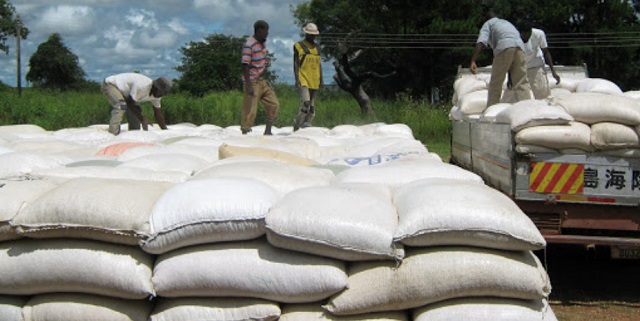
They say Kenyan government will continue to use the excuse of aflatoxins to prevent entry of maize into their market
Kamapala, Uganda | JULIUS BUSINGE | Kenyan authorities on March 11 announced the lifting of a ban on maize imports from Uganda and Tanzania but exporters claim the ban still stands.
Sources at the Uganda Revenue Authority at Busia and Malaba Borders told The Independent that they are yet to record maize exports destined to the Kenyan market citing possible strict conditions imposed on exporters.
The Kenyan government said all stakeholders dealing in maize imports require to be registered, consignments accompanied with certificate of conformity on aflatoxin levels and that traders have to issue details of their warehouses.
The certificate of conformity should also indicate that the aflatoxin levels complies with the maximum required levels of 10 parts per billion.
“The lifting of the ban announcement was about diplomacy to cool tensions,” said Julius Kalonde, a member of the Uganda Maize Exporters Association on March 18.
Kalonde said that in the event that the border has been re-opened for maize exports to Kenya, then it is only a few ‘people’ connected to the government exporting the maize, a claim that The Independent could not independently verify.
He said the Kenyan government will continue to use the excuse of aflatoxins to prevent entry of Ugandan maize into their market as it has done in the past with dairy and poultry products.
The Kenyan government, on March 05, banned maize imports from Uganda citing high levels of aflatoxin in the grain, setting stage for trade war between the two neighbouring states.
However, the Kenyan government lifted the ban a week later with strict conditions on exporters as measure to cub import of cancer-causing aflatoxin contaminated crop.
Kenya is currently the highest importer of maize grain in the EAC. In 2017, for example, it imported 1.4 million tonnes of maize; the highest volumes in the last 10 years.
The lowest was 100,000 tonnes in 2010. In 2020, it imported 400,000 tonnes. But the year before that it had imported just 270,000 tonnes.
Data from Uganda Bureau of Statistics shows that on an annual basis, Uganda produces 2.8 million metric tons of maize, and close to 90% of this is exported as grain to Kenya. Others are exported to the Democratic Republic of Congo and South Sudan as grain or flour.
Daniel Birungi, the executive director of Uganda Manufacturers Association (UMA), said the resolution of the maize ban being dropped is on paper but not practical.
“I would hesitate to celebrate; I think we still have work cut out for us to identify and resolve these issues,” he told The Independent.
Birungi bases his argument on Kenya’s historical behaviour of making empty promises. Last year in July, it banned imports of sugar originating from Uganda, alleging that the latter was importing sugar and repackaging it for export to Kenya.
In December last year, after talking to Ugandan authorities, Kenya agreed to lift the ban and allow sugar imports from Uganda to the tune of 90,000 metric tonnes annually.
However, Birungi told The Independent that to-date, after three months of agreement “we are still waiting for verification of our sugar” before it goes to Kenya.
He added that Uganda is ready to cooperate and support smooth movement of goods within the EAC.
“If there is an issue of quality, we are open to verification…but it should be done expeditiously,” he said.
He added, as UMA, they are continuing to have engagements with their counterparts in Kenya (Kenya Association of Manufacturers) on non-tariff barriers and related issues as one avenue of resolving the standoff.
Everest Kayondo, the chairman of Kampala City Traders Association said he does not support Kenya’s demeanour.
“No ban should exist without good reason,” Kayondo told The Independent.
No retaliation
Just like President Yoweri Museveni, Kayondo says, there should not be retaliation in instances where a partner state blocks goods from another within the EAC because it kills the whole spirit of the bloc’s establishment.
Economic analysts say, Kenya’s actions, being EAC’s largest economy, could be related to protectionism tendencies to keep it as a leader in the trading bloc.
Data from Bank of Uganda indicates that in 2018/2019, Uganda’s total imports from Kenya amounted to US$711 million and exports were US$433 million. In 2019/2020, Uganda imports from Kenya amounted to US$730million and exports were US$423million.
The Executive Director of Southern and Eastern Africa Trade Information and Negotiations Institute (SEATINI) Uganda, Jane Nalunga said, just like Kenya lifted the seven days ban on maize imports from Uganda, it should do the same for dairy and other products if fair trade is something to go by in the EAC economy.
****
 The Independent Uganda: You get the Truth we Pay the Price
The Independent Uganda: You get the Truth we Pay the Price



